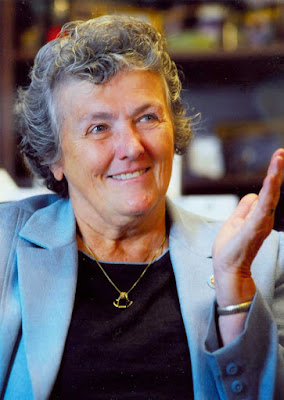Thomas Merton, Trappist, died December 10, 1968
Thomas Merton entered the Abbey of Gethsemane in Bardstown, Kentucky, at the age of twenty-six, on December 10, 1941, a convert of three years, a pacifist, and a very experienced young man.
Merton was a man with a monastic soul who brought new levels of meaning to the oldest elements of monastic life. Merton knew what had often been forgotten in monastic history: that monasticism is not about withdrawal; monasticism is about depth.
Merton’s new understanding of the stuff of contemplation led him beyond the boundaries of the order and into the very center of the contemplative vocation. As wars raged and racism consumed the country and feminism began to critique the established order, Merton began to look for bridges across the human divide. He became more and more interested in the monasticism of the Eastern religions, reaching out always for the intangibles that transcend boundaries and races and denominations in favor of that one unity that sanctifies us all, humanity.
Contemplation, Merton knew, was the key to experiencing that unity because contemplation, whatever its denominational origin, is simply coming to view life through the heart of God. It is coming to see the world as God sees the world. As one.
In an age when all of religious life itself was bursting at the seams, shedding one period of history, trying to become leaven in another, Merton began to live into the new model right before our eyes. Merton knew that the role of religious life in the modern world was to develop people of substance who were immersed in questions of social significance. Merton knew that religious life was not the fine art of maintaining monastic museums. On the morning of his death, Merton delivered his last public paper, “Marxism and Monastic Perspectives,” to the Bangkok conference of Benedictines and Cistercians. The monastic, he said, “is essentially someone who takes up a critical attitude toward the world and its structures…(saying) that the claims of the world are fraudulent.”
Merton the man taught the world that the spiritual life is not the elimination of struggle; it is the sanctification of struggle. It is struggle transformed to wisdom.
Merton the monk taught the world that withdrawal is not of the essence of a holy life. The essence of a holy life is immersion in the spiritual and commitment to the significant.
Merton the contemplative taught the world that we know that we will have come to see God when we have come to see people as sacred.
—from A Passion for Life (Orbis), by Joan Chittister

No comments:
Post a Comment